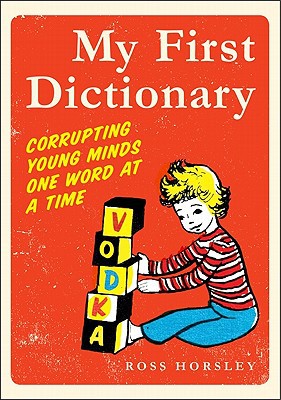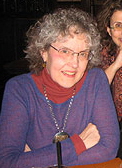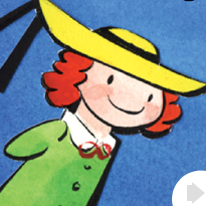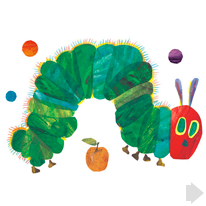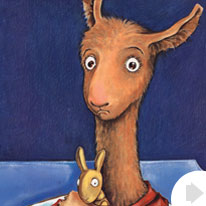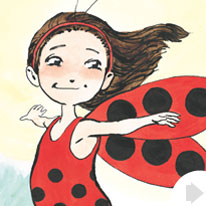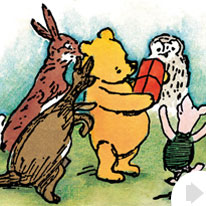There’s a scene in Woody Allen’s Hannah and Her Sisters where Michael Caine’s character initiates flirtation (okay, yes, with his sister-in-law; not the point here) with a book of poetry. It’s an intimate gift, it’s a risk, it’s personal. It’s romantic. He urges her to read the poem on page 112, e.e. cummings’ poem with the famous lines, “nobody, not even the rain, has such small hands.” It moves her and seduces her.
GI Jane is an action movie about a woman trying to break the gender barrier in Navy SEAL training. A series of harrowing experiences pits her against the tough, deeply skeptical Command Master Chief, whom she eventually saves in real battle conditions. At the end of her training, she finds that he’s left his own well-worn copy of a poetry anthology in her locker. Circled in red is D.H. Lawrence’s “Self-Pity:”
I never saw a wild thing
sorry for itself.
A small bird will drop frozen dead from a bough
without ever having felt sorry for itself
This is the poem the commander started every training season with; it was the poem he aimed scornfully at the lone female recruit on her first day. Now, it signifies his admiration and gratitude. No gift could have been more meaningful to its recipient.
I’m sure you get where I’m going here. There is just something about a book passed from one set of hands to another that enhances, even transcends, its contents.
Somehow, I just can’t think that either of the above-mentioned gifts would have packed the same punch if the poem had been emailed, printed out and handed over, or sent as an e-gift. A book has its unique heft and weight and texture; it changes over time, edges softening, pages acquiring evidence of its history with a reader (fingerprints, a drop of spilled orange juice, marginalia). Receiving a book from a new love interest, especially a book from his or her personal collection, is as intimate as receiving a worn piece of clothing, and often more revealing. The book even smells like that person’s life. Best of all, he or she has held it! With those beautiful hands!
Today, a customer came in for a book she is giving as a gift to someone she has a crush on. It was a book of essays on art. “Do you think it’s too… obvious?” she asked. I loved the question, loved particularly the fact that, because of what an exchanged book signifies, the answer to that question could actually be yes.

